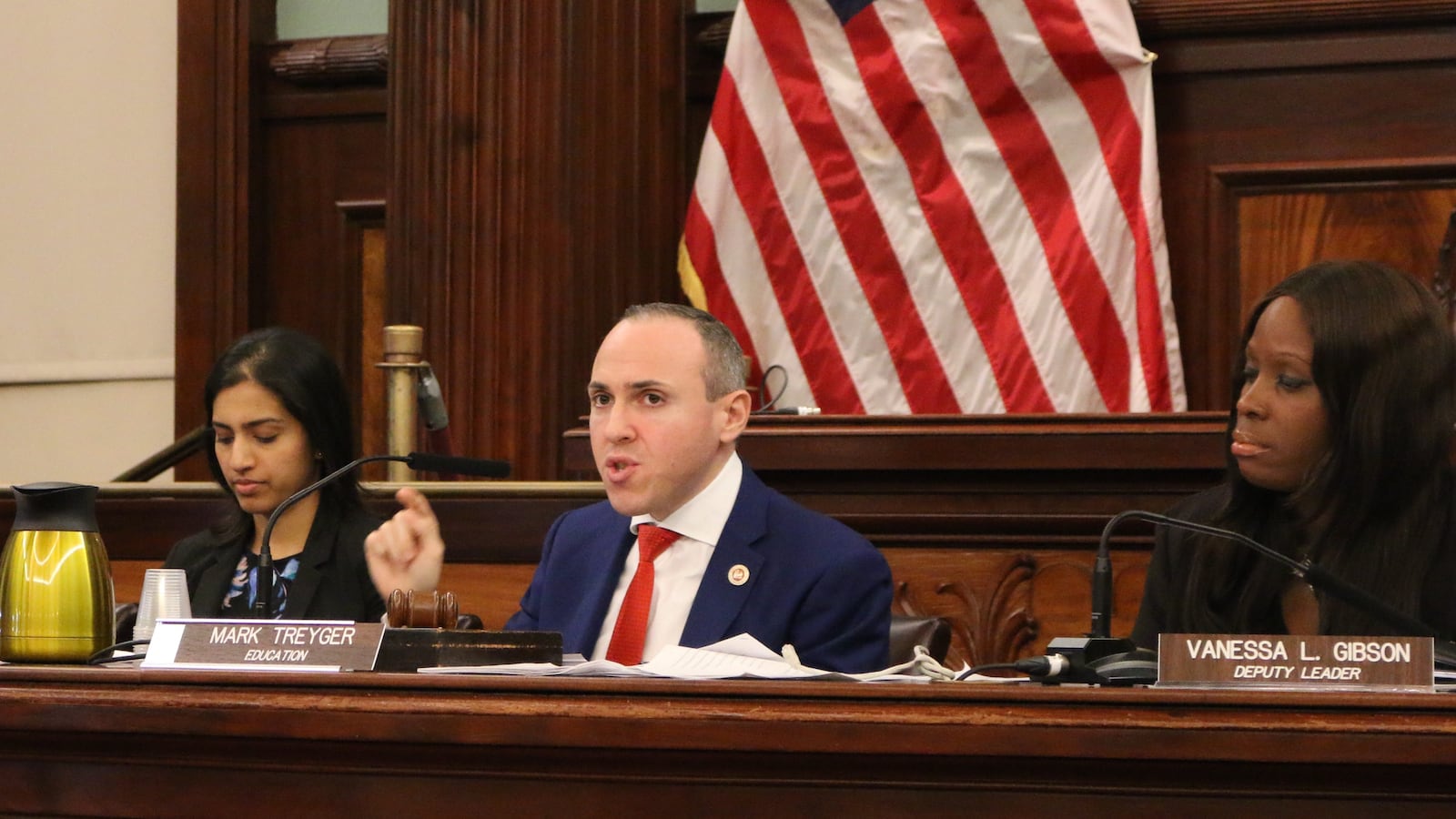New York City lawmakers asked pointed questions about Mayor Bill de Blasio’s controversial school-improvement program Tuesday, suggesting that it may hurt the city’s broader effort to infuse schools with a host of social services.
De Blasio’s conservative critics have long attacked his $582 million “Renewal” program as a misguided effort to save troubled schools that should be shuttered and replaced. But during his first oversight hearing as chairman of city council’s education committee, Councilman Mark Treyger, did not question the program’s premise so much as its implementation and results.
The sharp questioning comes at an uncertain moment for the program’s future. What was originally billed as a three-year intervention is now approaching its fourth year. And even as some of the original 94 Renewal schools have made enough progress to begin transitioning out of the program, an oversight panel is set to vote Wednesday on the education department’s plans to shut down eight additional Renewal schools that have failed to make major gains.
Treyger — who has criticized de Blasio in the past despite being his ideological ally — was not just concerned about the Renewal program during Tuesday’s hearing.
He worried aloud that the Renewal program’s mixed record could jeopardize the city’s push to create more “community schools” with extra social workers, mental health services, and even laundry machines. A core feature of the Renewal program is turning struggling schools into social service-filled community schools, while also extending their school days and providing extra academic help.
“The concept of a community school has now become confused with the negative image of a low-performing Renewal school,” Treyger said, adding that he hopes every city school will ultimately become a community school. “In an unfortunate muddying of the waters, the city’s community school model has come under increasing scrutiny as a school-improvement strategy.”
Treyger’s comments echo what many of de Blasio’s allies have long feared: That the broader push to infuse high-need schools with new services — which now includes 227 city schools and will cost $195 million this year alone — would be tied to a school-improvement strategy that has not lived up to the mayor’s promise of “fast and intense” turnarounds.
While Treyger said he’s visited Renewal schools that are improving and benefiting from the program, he also offered some broad critiques of it — a stark contrast to a more friendly hearing in 2015 where Treyger’s predecessor, Councilman Daniel Dromm, said it was “refreshing to hear all the work that’s being done to turn around our struggling schools.”
Treyger suggested that the program’s bumpy rollout and the stigma attached to schools targeted for improvement have hamstrung some Renewal schools from the start. He and other city lawmakers also raised questions about the schools’ high teacher and principal turnover, whether the city’s benchmarks are rigorous enough, and what criteria the city uses to close Renewal schools.
City officials have already moved to close or merge 26 of the program’s original 94 schools, citing poor performance or low enrollment. Beginning this year, they are also slowly transitioning another 21 schools that have shown signs of progress out of the program.
Education department officials acknowledged some of the challenges associated with improving long-struggling schools, but argued during the hearing that the program has shown “encouraging” signs of progress with many of the schools seeing higher graduation rates, test scores, and attendance rates.
City officials said there had also been better teacher retention at Renewal schools than in the past, and believe the remaining schools will make enough progress to eventually exit the program.
“We are confident in most of these 47 schools,” said Laura Feijoo, who supervises superintendents, referring to the remaining Renewal schools. “They are headed in that direction.”
Some city council members asked whether schools that begin to ease out of the program will backslide if some of their extra supports are taken away. Education officials stressed that schools leaving the program will remain community schools, and will not lose funding.
As for the program itself, Feijoo said it will not disappear overnight.
“The Renewal school program is not over,” she said. “We’re going into year four.”

